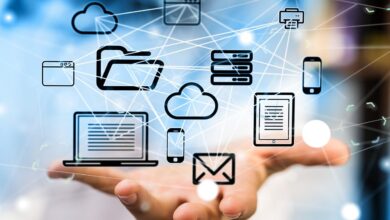Recommended Tips to Build Long-Term Businesses

In an era defined by rapid technological change, global economic shifts, and unpredictable market volatility, the traditional business model is no longer enough. The simple goal of maximizing short-term profits has been replaced by a more complex and critical objective: building a business that is resilient, adaptable, and capable of thriving in any environment. This is the essence of creating a future-proof business. It’s not about predicting every challenge, but about constructing an enterprise so fundamentally sound and flexible that it can bend without breaking. For entrepreneurs and established companies alike, this strategic shift is not optional; it is the key to sustained success and a lasting legacy. This comprehensive guide will explore the core principles and actionable strategies required to inoculate your business against future shocks and ensure its long-term viability.
The New Economic Landscape

The business world today operates at an unprecedented speed, driven by forces that were unimaginable just a decade ago. The digital revolution has shattered traditional barriers to entry, while global events and changing consumer values have rewritten the rules of commerce. Understanding this new landscape is the first step toward building a business that is not just a participant but a leader.
The modern market is characterized by several key factors:
- Hyper-connectivity: The internet and social media have given consumers instant access to information, reviews, and alternatives. A brand’s reputation can be built or destroyed in a matter of days.
- Accelerated Technological Adoption: New technologies, from artificial intelligence to blockchain, are transforming industries at a pace that leaves many businesses struggling to keep up.
- Shifting Consumer Values: A new generation of consumers is more conscious of a brand’s ethical practices, environmental impact, and social responsibility. They are willing to pay a premium for products and services that align with their personal values.
- Economic and Geopolitical Instability: Supply chain disruptions, economic downturns, and geopolitical tensions have become more common, forcing businesses to build more robust and localized operations.
In this environment, a flexible and forward-thinking business model is the only way to survive. The old-school approach of relying on a single product or a static strategy is a recipe for obsolescence.
The Core Pillars of a Future-Proof Business
A resilient business is built on a foundation of key principles. These aren’t just buzzwords; they are integrated, strategic pillars that support every aspect of the organization, from operations to customer relations.
A. Digital Transformation and Technology Integration
Technology is not a department; it’s the nervous system of a modern business. A future-proof company fully embraces digital transformation, leveraging technology to improve efficiency, enhance customer experience, and gain a competitive edge. This goes far beyond just having a website.
- Artificial Intelligence (AI) and Machine Learning: AI is no longer a futuristic concept; it’s a tool for immediate gain. AI-powered algorithms can personalize customer experiences on e-commerce sites, automate customer service with chatbots, and optimize supply chain logistics by predicting demand. Businesses that use AI to analyze large datasets can gain powerful insights into consumer behavior, allowing them to proactively adapt their offerings.
- Big Data Analytics: Every customer interaction, website visit, and transaction generates data. A future-proof business uses powerful analytics tools to turn this raw data into actionable intelligence. This allows for more targeted marketing campaigns, more efficient inventory management, and a deeper understanding of what drives customer loyalty.
- Cloud Computing and Infrastructure: Migrating to the cloud provides a level of flexibility and scalability that on-premise solutions cannot match. Cloud infrastructure allows businesses to scale operations up or down instantly based on demand, reducing costs and improving agility. It also provides enhanced security and remote access, which is crucial for a modern, often decentralized workforce.
- Omnichannel Presence: Consumers expect a seamless experience across all touchpoints, from your physical store to your social media, e-commerce site, and mobile app. An omnichannel strategy ensures consistent branding, product availability, and customer service regardless of how the customer chooses to interact with you. This creates a more integrated and reliable customer journey.
B. The Power of Sustainability and Ethical Practices
Conscious consumerism is on the rise, and a brand’s ethical standing is now a major factor in purchasing decisions. A future-proof business recognizes that sustainability is not a cost but an investment in its brand reputation and long-term viability.
- Circular Economy Models: Moving away from the traditional “take-make-dispose” model, a circular economy focuses on resource efficiency. This could involve using recycled materials, designing products for longevity and repair, or offering a product-as-a-service model. Businesses that reduce waste and minimize their environmental footprint not only appeal to a growing consumer base but also future-proof themselves against stricter environmental regulations.
- Social Responsibility: Beyond the environment, a business’s impact on society is under scrutiny. This includes fair labor practices, community involvement, and diversity and inclusion initiatives. Brands that actively contribute to the well-being of their communities and employees build trust, loyalty, and a positive public image that is incredibly difficult for competitors to replicate.
- Transparent Supply Chains: Consumers want to know where their products come from. A business with a transparent and ethical supply chain builds trust and can command a premium. Using technologies like blockchain to track products from source to shelf can provide irrefutable proof of ethical sourcing and production.
C. Building an Unbreakable Customer Loyalty Engine
In a crowded market, repeat business is the lifeblood of a sustainable enterprise. A future-proof business doesn’t just acquire customers; it builds a loyal community that acts as a powerful marketing and sales engine.
- Customer-Centric Approach: This goes beyond simple customer service. It involves actively seeking feedback, understanding pain points, and using that information to continuously improve your product or service. Personalized communication, tailored recommendations, and a frictionless purchasing experience are all hallmarks of a customer-centric model.
- Subscription and Membership Models: These models provide a predictable, recurring revenue stream that insulates a business from market fluctuations. Whether it’s a monthly box of curated products, a premium content subscription, or a software-as-a-service model, recurring revenue allows for more accurate forecasting and a deeper, ongoing relationship with your customers.
- Community Building: Creating a brand community, whether on social media, a dedicated forum, or a Discord server, transforms customers into brand advocates. A community provides a platform for customers to connect with each other, share experiences, and feel a sense of belonging. This fosters a loyalty that goes far beyond the product itself.
D. Fostering a Culture of Agility and Innovation
A business is only as future-proof as its ability to adapt. This requires a company culture that not only tolerates change but actively seeks it out.
- Lean Startup Methodology: This involves a continuous cycle of building, measuring, and learning. Instead of spending years developing a product in a vacuum, a business can launch a minimum viable product (MVP), gather feedback, and iterate based on real-world data. This minimizes risk and ensures that the final product truly meets market needs.
- Continuous Learning and Upskilling: A company is a collective of individuals, and their knowledge is its most valuable asset. Investing in continuous learning, upskilling, and professional development ensures that your team remains at the forefront of their field. This keeps your business innovative and prevents a skills gap from becoming a competitive disadvantage.
- Decentralized Decision-Making: Hierarchical structures can be slow and rigid. Empowering teams and individuals to make decisions closer to the problem allows for faster response times and more creative solutions. A decentralized model fosters a sense of ownership and responsibility throughout the organization, making it more agile and responsive to change.
Practical Strategies for Various Business Sectors

The principles of future-proofing apply to every industry, but the specific strategies can vary.
A. Retail and E-commerce
- Strategy: Implement an advanced omnichannel experience. Use AI to personalize product recommendations on your website and a cloud-based inventory system to ensure real-time stock availability across all your sales channels. Offer “buy online, pick up in-store” (BOPIS) to bridge the gap between digital and physical.
- Future-Proofing Element: Seamless integration and data-driven personalization create customer stickiness, while robust logistics and supply chain transparency build trust and resilience against disruptions.
B. Service-Based Businesses
- Strategy: Digitize your service delivery and implement a subscription model. For example, a marketing agency could offer a monthly retainer for continuous service and strategy. Use AI tools for task automation, such as scheduling and data analysis, freeing up your team to focus on high-value client work.
- Future-Proofing Element: Recurring revenue provides stability, and a focus on high-touch, personalized service creates a barrier to entry for competitors.
C. Technology Startups
- Strategy: Build a scalable product on a cloud-native architecture. Use a lean startup methodology to iterate quickly based on user feedback. Focus on a narrow, high-value niche before attempting to scale.
- Future-Proofing Element: A flexible, scalable tech stack allows for rapid growth, while a lean, data-driven approach ensures the product evolves with the market, not against it.
D. Manufacturing and Production
- Strategy: Embrace smart manufacturing and the Internet of Things (IoT). Use sensors on machinery to predict maintenance needs and optimize production schedules. Adopt sustainable practices like recycling waste materials and designing products for modularity and repair.
- Future-Proofing Element: IoT provides real-time data for efficiency and reduces downtime, while sustainable practices improve brand reputation and protect against future regulations.
The Role of Human Capital in Future-Proofing
Technology and strategy are only part of the equation. A business’s greatest asset is its people. Building a future-proof workforce is just as critical as building a future-proof business model.
- Talent Acquisition and Retention: In a competitive market, attracting and retaining top talent requires more than just a good salary. Offer a compelling company culture, opportunities for growth, and a clear sense of purpose. A diverse workforce brings a wider range of perspectives and ideas, which is essential for innovation.
- Remote and Hybrid Work Models: The pandemic proved that remote work is not only possible but can be highly productive. Adopting a flexible work model allows a company to tap into a global talent pool, reduces overhead costs, and improves employee satisfaction and work-life balance.
- Employee Well-being and Mental Health: A burnt-out workforce is a liability. Prioritizing employee well-being, providing mental health resources, and fostering a supportive and inclusive environment leads to higher productivity, lower turnover, and a more resilient team.
Conclusion
Future-proofing a business is not a single project with a clear end date; it is an ongoing, dynamic process of adaptation, innovation, and strategic foresight. It requires a fundamental shift in mindset, moving away from short-term financial gains to a focus on long-term sustainability, resilience, and positive impact. The journey is complex, requiring a deep commitment to digital transformation, ethical responsibility, and a relentless focus on the customer.
The most successful businesses of tomorrow will be those that view technology not as a challenge, but as a powerful tool to enhance every aspect of their operation. They will be the ones that see sustainability not as a cost, but as an opportunity to build trust and attract a new generation of conscious consumers. They will be the businesses that understand that a loyal community of brand advocates is a more valuable asset than any marketing budget.
Ultimately, future-proofing is about building a business that is not only profitable but also purposeful. It’s about creating an organization that is so robust and adaptable that it can weather any storm, whether it’s a market downturn, a technological disruption, or a global crisis. The companies that embrace these principles will not just survive the future; they will shape it. For the modern entrepreneur, the greatest challenge and the greatest opportunity lie in the creation of a legacy business—one that is built to last, not just for the next quarter, but for the next generation. It is a monumental task, but the reward is an enterprise that is not only commercially successful but also a force for positive change in the world.





